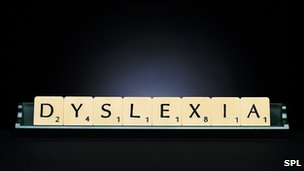理解他人--患有读写困难的人在声音识别上有困难
摘要:读写困难也叫读写障碍症,是一种最常见的特殊学习困难,泛指在阅读、书写或拼字方面的障碍。爱迪生,爱因斯坦,毕加索等人就是读写困难症者。这些人在解决了这类障碍问题后,常常显示出在某一方面的独特的创造力。
导读:研究发现,患有读写障碍的人在声音识别上有很大困难,他们会极力从不熟悉的声音中寻找熟悉的声音。实验时,研究人员将30名年龄,受教育程度和智商相差不多的人分为两组,一组是有诵读障碍史的人,而另一组人没有。借助计算机的帮助,研究人员发现有读写障碍的人大脑中存在“声音盲点”,这便是他们在声音的区别上有困难的原因。
People with dyslexia struggle to recognise familiar voices, scientists suggest.
The finding is the first tentative evidence that small sounds in the human voice that vary between people are difficult for dyslexics to hear.
Writing in the journal Science, the scientists say that many people could have some degree of "voice blindness".
And by studying it, scientists hope to better understand how the human brain has evolved to recognise speech.
Humans rely on small sounds called phonemes to tell one person from another.
As we first try to form the word dog, for example, phonemes are the "duh"-"og"-"guh" sounds that our parents prompt us to make.
But as we master the ability to read, we become less reliant on recognising these sounds to read, and eventually stop noticing them.
Despite ignoring them, however, phonemes remain important for voice recognition.
The tiny inflections in the way people pronounce phonemes gives a listener cues to tell one voice from another.
Because people who suffer from dyslexia are known to struggle with phonemes when reading, a US-based team of scientists wondered whether they might also struggle hearing them in people's voices.
Listen well
To investigate, the team grouped 30 people of similar age, education and IQ into two camps: those with and without a history of dyslexia.
The subjects then went through a training period to learn to associate 10 different voices - half speaking English and half speaking Chinese - with 10 computer-generated avatars.
The subjects were then later quizzed on how many of those voices they could match to the avatars.

Non-dyslexics outperformed people with a history of dyslexia by 40% when listening to English.
However, this advantage disappeared when the groups were listening to Chinese.
Dorothy Bishop from the University of Oxford thinks that this is because "when [they] are listening to Chinese, it is a level playing field, because no one has learned to hear [Chinese] phonemes".
The researchers think that dyslexics don't have as comprehensive a phoneme sound library in their heads, and so they struggle when they hear phonemes spoken by unfamiliar voices because their "reference copy" isn't as well-defined.
"It is a very interests result... the only thing that I would really like to see to convince me... is if they were to repeat the experiment using Jabberwocky."
Using Jabberwocky, the nonsense poem by Lewis Carroll, would allow the researchers to determine whether the listeners identify who's who from the meaning of what they are saying, or whether listeners are purely relying on the phonemes.
Dr Bishop speculated that non-dyslexics may be worse at extracting the meaning of the words, meaning they under perform in this task.
Understanding the mechanics of voice recognition is important, said the study's lead author Tyler Perrachione from the Massachusetts Institute of Technology in Cambridge, US, because it allows a listener to pinpoint a familiar voice above the hubbub of a crowded room.
Mr Perrachione explained that very little is known about voice blindness, which is formally called phonagnosia.
"In reality, phonagnosia is probably much more common," he explained, "but people who don't recognize that voices sound different may not even realize they lack the ability to tell voices apart."





